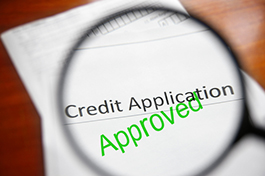7 Tips To Getting a Loan after a Bankruptcy Discharge
 If you have filed for bankruptcy, then you are far from alone. Even though it can be very disheartening and stressful, it is by no means the end of the world, nor the end of your credit worthiness. If you plan carefully and learn to manage your money better, you will be able to improve your credit score and qualify for a loan sooner than you think.
If you have filed for bankruptcy, then you are far from alone. Even though it can be very disheartening and stressful, it is by no means the end of the world, nor the end of your credit worthiness. If you plan carefully and learn to manage your money better, you will be able to improve your credit score and qualify for a loan sooner than you think.Get Your Discharge ASAP
Don’t allow your bankruptcy to sit on the books and on your credit for longer than necessary. Have a serious talk with your trustee about your goals to get back to credit worthiness. Complete all your bankruptcy duties including making your payments in full and on time. Failure to complete your duties will result in a longer bankruptcy, increasing the time your bankruptcy will remain on your credit report as well.
Complete Your Credit Counselling
Take advantage of the credit counselling classes that are part of your bankruptcy duties. Ask your credit counsellor to help you understand where you went wrong so you can manage your money better going forward. Learn budgeting skills and how to use credit properly so you can build better habits for a stronger financial future.
Start Saving Money
After your discharge, and before you begin to rebuild your credit, it is a good idea to have a budget in place. This will allow you to keep track of where your money goes, and how much of it can be cut back. The goal is to start spending less than you earn. Check with local community organizations for some free budgeting classes. You need to put together an emergency fund that will carry you for at least 4 months in the event of job loss or injury. You will never get ahead if you have to file bankruptcy every time a twist comes in the road.
Never Miss A Payment
No matter what you do to try and repair your credit, it will all be useless if you continue to have negative behaviour reported in your credit history. The best thing that you can do for you credit is to always pay your bills on time.
Begin To Rebuild Your Credit
Once you have your emergency fund saved up, it is time to begin rebuilding your credit. Secured credit cards as well as unsecured credit cards are available just to help people build credit, or rebuild bad credit. The offers that you will receive on a secured credit card will have high interest rates and high annual fees. Here’s the trick. Use these cards in place of cash – do not build up your debt again.
When you decide on a card, please note that though it may be easier to get a secured credit card from a third party finance company it looks more favorable to get one from a bank or credit union. Other institutions in the position to give you money prefer people who re-established their credit with a mainstream lender.
Use Credit Carefully
Never use more than 30% of your credit limit. For the best results, pay a small monthly bill like the electric bill with it. Wait for the statement to run, then pay off the balance in full. Do this every month, and this will save you from accruing high interest rates while keeping your monthly balance low.
Take On Loans Again
After your credit score has been reinstated and you have some savings you can begin taking on loans again. Keep in mind that your first bankruptcy stays on your credit report for 6 to 7 years. Even after those years are up, you are required to inform lenders that you have declared bankruptcy before. This could affect your chances of approval. However, there are personal loan lenders in Canada who seek out individuals who have been discharged from bankruptcy because at that point those individuals tend not to have any existing debt burden, hold a strong debt to income ratio and thus make good candidates for loans.
Remember that initially any loan you may qualify for will have a high interest rate. To improve your chances of getting a mortgage, it is best to continue your saving until you have more than 5% to put down, and that you have homeowner mortgage loan insurance. The bigger your deposit though, the lower your rate.
Generally it will take two years of established credit from the date of your discharge before you will qualify for a loan as large as a mortgage.
Always consult with a trustee before declaring bankruptcy, as they may have options that work better for your situation.
This article was written by Cris Ravazzano, a web strategist and writer for LoansCanada.ca





No comments:
Post a Comment